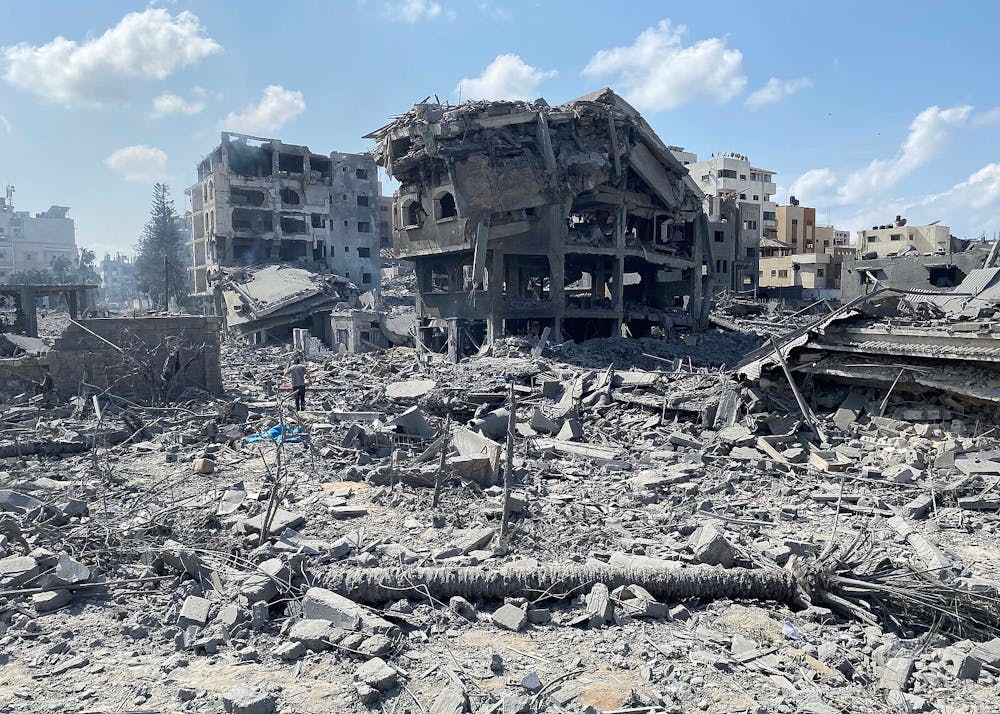By Paige Gould
Staff writer
Food is power. As seen in South Sudan and the Gaza Strip, the lack thereof symbolizes a power imbalance and points to the instability these vulnerable populations face.
The power dynamics in South Sudan prove, through the lack of action to end the humanitarian crisis, that its government does not care about its people. Similarly, the power dynamics in historic Palestine have the same effect with colonial Israel refusing to acknowledge Palestinian land as a territory that they forcefully acquired, displacing millions of natives.
Political immobility among these regions has deteriorated the health of South Sudanese and Palestinian peoples. Therein lies the intersection of acute food insecurity and political challenges that harm the well-being of Black and brown bodies.
Hunger is dangerous to conflict-stricken, international populations. According to the Integrated Food Security Phase Classification (IPC), almost 2.1 million people in the Gaza Strip were classified as being in a state of ‘Crisis’ or worse (IPC Phase 3 or above) from Nov. 24, 2023, through Dec. 7, 2023.
Nearly 939,000 people were in ‘Emergency’ (IPC Phase 4), and an additional 377,000 people were in ‘Catastrophe’ (IPC Phase 5).
The Gaza Strip is highly vulnerable to this hunger crisis, especially the northern Gaza Strip. Israel's military told the Palestinian people to evacuate to Rafah, the Southernmost part of Gaza, on Oct. 13th, further fueling the unrest that we’re seeing.
Famine is prevalent among the besieged population in Gaza. As Joseph Schechla, a United Nations official who served as a representative of the Office of the High Commissioner for Human Rights in Palestine, said, “It’s considered a war crime and a crime against humanity to deny food, the means of existence and subsistence to a people or to any identifiable group on the basis of discrimination.”
Meanwhile, South Sudan also faces a hunger catastrophe alongside the climate crisis and an increasing Sudanese refugee population.
According to Al Jazeera, failure to produce a stable country after its conception in 2011 is one of the causes of this hunger crisis. A consequence of this instability is the nation’s dependency syndrome, stemming from a reliance on high amounts of foreign aid. Fatigued donor powers have been pumping billions into South Sudan, meanwhile, oil revenue disproportionately lined the pockets of South Sudanese government officials.
South Sudan’s current government has failed to reorient its politics to accommodate its population. As it stands, South Sudan is not ready to have its scheduled presidential election in December 2024
Alan Boswell, Horn of Africa director of the International Crisis Group, stated since the beginning of South Sudan’s conception, the people suffering are the result of the failed state. Boswell has lost hope in the current president, Salva Kiir Mayardit, to make a genuine change for his people.
Food insecurity has given rise to communal violence, where the populations are being displaced. People are still suffering to an extent beyond our imaginations.
The bridge between food insecurity and political inertia in regions like South Sudan and the Gaza Strip highlights the dire consequences of extreme hunger on vulnerable populations. The deprivation of food not only reflects power imbalances but also exacerbates existing vulnerabilities, particularly among marginalized communities. Urgent action is needed if the cycle of instability is to break and to improve the well-being of those affected.







